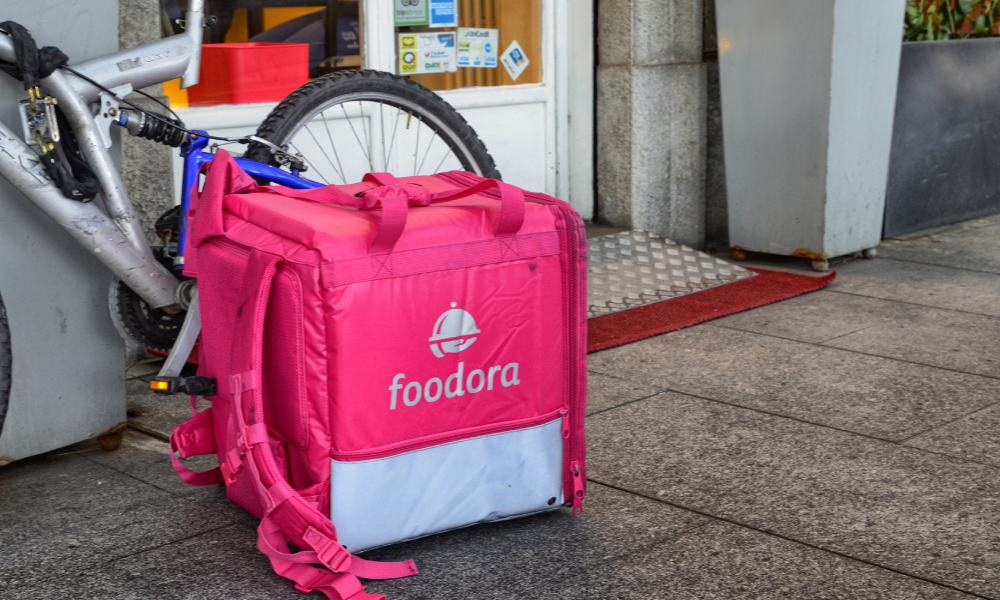‘We will continue to fight for their rights, whether it is through the negotiation of this settlement or through collective bargaining with a new employer’

Former Foodora food couriers across the country will receive a $3.46 M settlement after the company filed for bankruptcy and shut down its Canadian operations in April of this year.
“We're happy to see Foodora has acknowledged its workers deserve a settlement. It's a big change for gig workers,” said Iván Ostos, Foodora courier and union organizer. “If employers believe it is not worthwhile to do business here, we will fight to make sure workers receive what they're due.”
The settlement was finalized by the Canadian Union of Postal Workers (CUPW) and Delivery Hero, the parent company for Foodora Canada.
“This settlement shows what happens when workers have unions fighting for them,” said Jan Simpson, CUPW national president. “To lose your job during a global pandemic is stressful, but to lose it as a gig worker, with no guaranteed access to government funds is truly terrifying and we are pleased to have reached this settlement to lessen the financial stress imposed on the foodsters.”
In February, the couriers and drivers in Toronto and Mississauga were granted the right to unionize when the Ontario Labour Relations Board (OLRB) ruled that they were dependent contractors and not independent contractors, as was their previous classification.
That decision allowed the union certification votes, sealed since Aug. 2019, to be counted. In June of this year, the results were announced: Almost 90 percent of Foodora couriers voted in favour of unionizing with CUPW, becoming the first app-based workers in Canada to successfully unionize.
“Foodora may have left Canada, but the workers are part of CUPW,” said Simpson. “We will continue to fight for their rights, whether it is through the negotiation of this settlement or through collective bargaining with a new employer. We are in this together.”
Earlier this year Glyn Jones, a Calgary-based partner at EHS Partnerships, wrote a piece for COS on new safety risks being raised by the gig economy.
Among other things, Jones brought up ongoing concerns about what employers owe gig workers, he said “the emergence of the gig economy does not absolve employers of their duty of care, but it does cloud the issue and make it more difficult to see and manage the liability.”
In May, CUPW called on the federal government to ‘protect’ Foodora workers after the delivery service announced it is leaving the Canadian market amid the COVID-19 pandemic.





